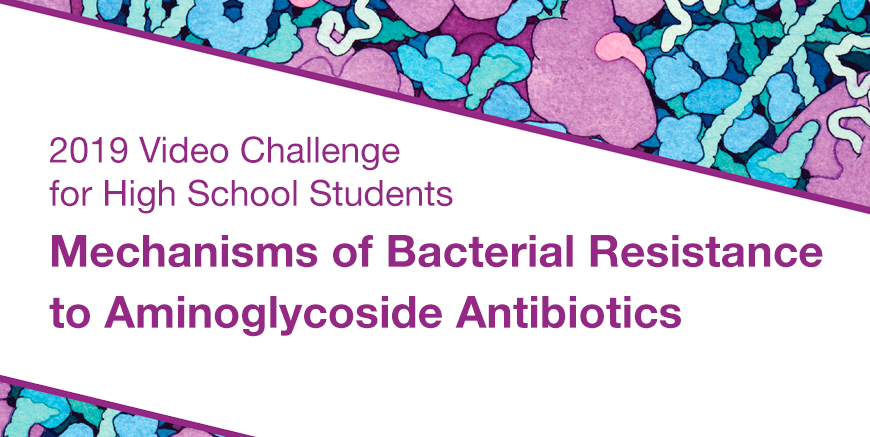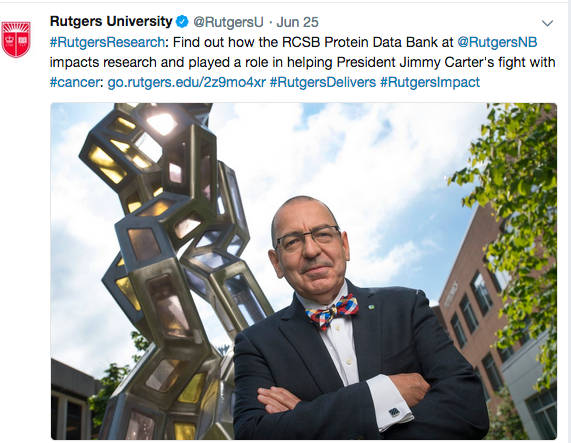Message from RCSB PDB
Protein Data Bank Benefits Global Health, Science, Economy
The globally unique PDB – the first open-access, digital data resource in biology – is managed by the Worldwide Protein Data Bank partnership between data centers in the U.S., Europe and Asia. U.S. operations are led by Rutgers and the University of California, San Diego-San Diego Supercomputer Center. Funding comes from the National Science Foundation, National Institutes of Health and U.S. Department of Energy. The data bank has a long history with Rutgers. Helen M. Berman, Board of Governors distinguished professor emerita of chemistry and chemical biology at Rutgers–New Brunswick, co-founded the data bank in 1971 and brought it to Rutgers in 1998. She continues to provide support in her role as director emerita.
Head Back to School with PDB-101
PDB-101 is RCSB PDB’s online portal for teachers, students, and the general public that promotes exploration in the world of proteins and nucleic acids. Learning about the diverse shapes and functions of these biological macromolecules helps to understand all aspects of biomedicine and agriculture, from protein synthesis to health and disease to biological energy.
This website ("101", as in an entry level course) presents introductory materials that introduce beginners to the structures of proteins and nucleic acids contained in the PDB archive. Resources for extended learning are also provided.
PDB-101 offers curricular materials, templates to create 3D paper models, Molecule of the Month articles, and other materials developed by RCSB PDB.
Users can search the website for related materials using molecule name or keyword. The Browse option can be used to explore available PDB-101 resources organized by topics such as the immune system and renewable energy.
PDB101.rcsb.org is updated with news and features regularly.
| Snapshot: October 1, 2018 | |
|---|---|
| 144,682 | Released atomic coordinate entries |
| Molecule Type | |
| 134,223 | Proteins, peptides, and viruses |
| 3,257 | Nucleic acids |
| 7,170 | Protein/nucleic acid complexes |
| 32 | Other |
| Experimental Technique | |
| 129,493 | X-ray |
| 12,374 | NMR |
| 2,423 | Electron Microscopy |
| 267 | Hybrid |
| 125 | Other |
| Related Experimental Data Files | |
| 119,352 | Structure factors |
| 9,713 | NMR restraints |
| 3,465 | Chemical shifts |
| 2,478 | 3DEM map files |




